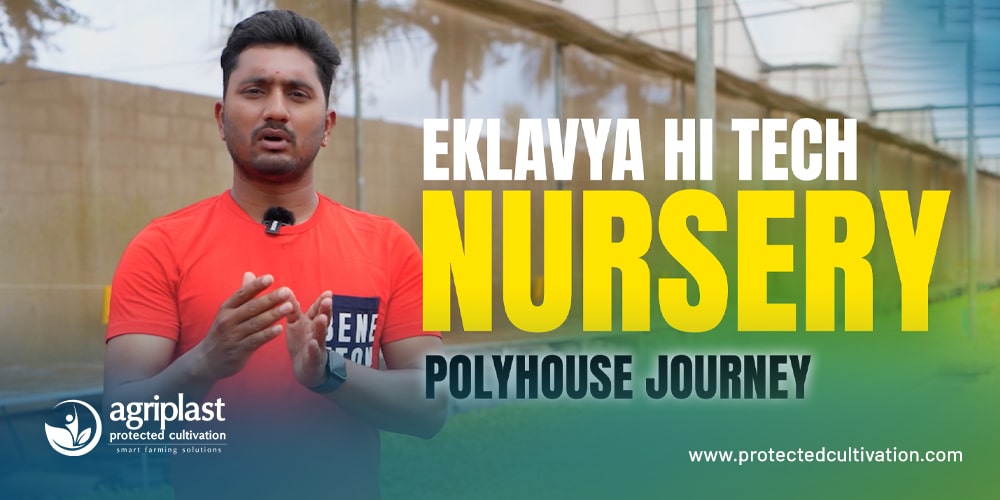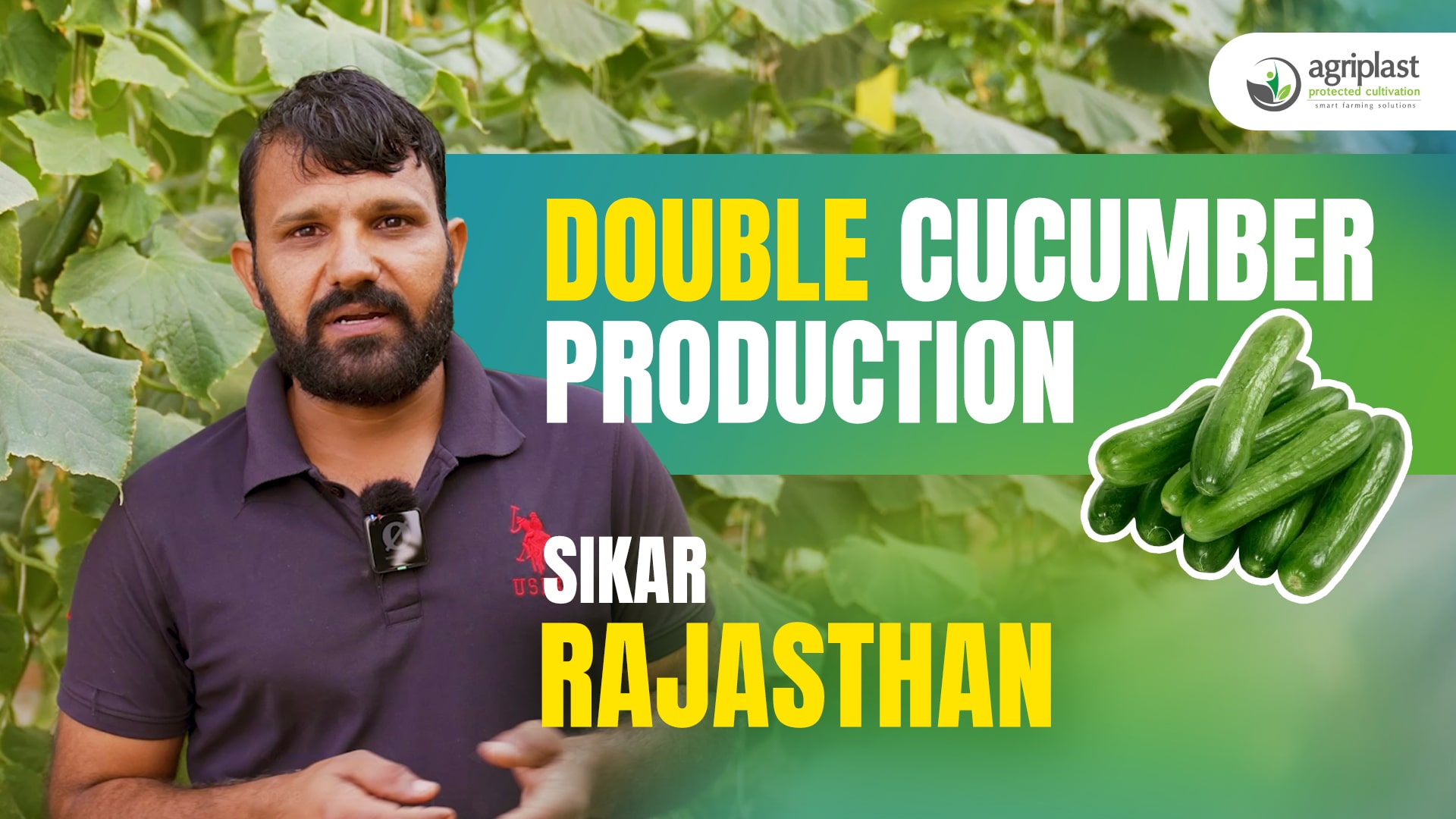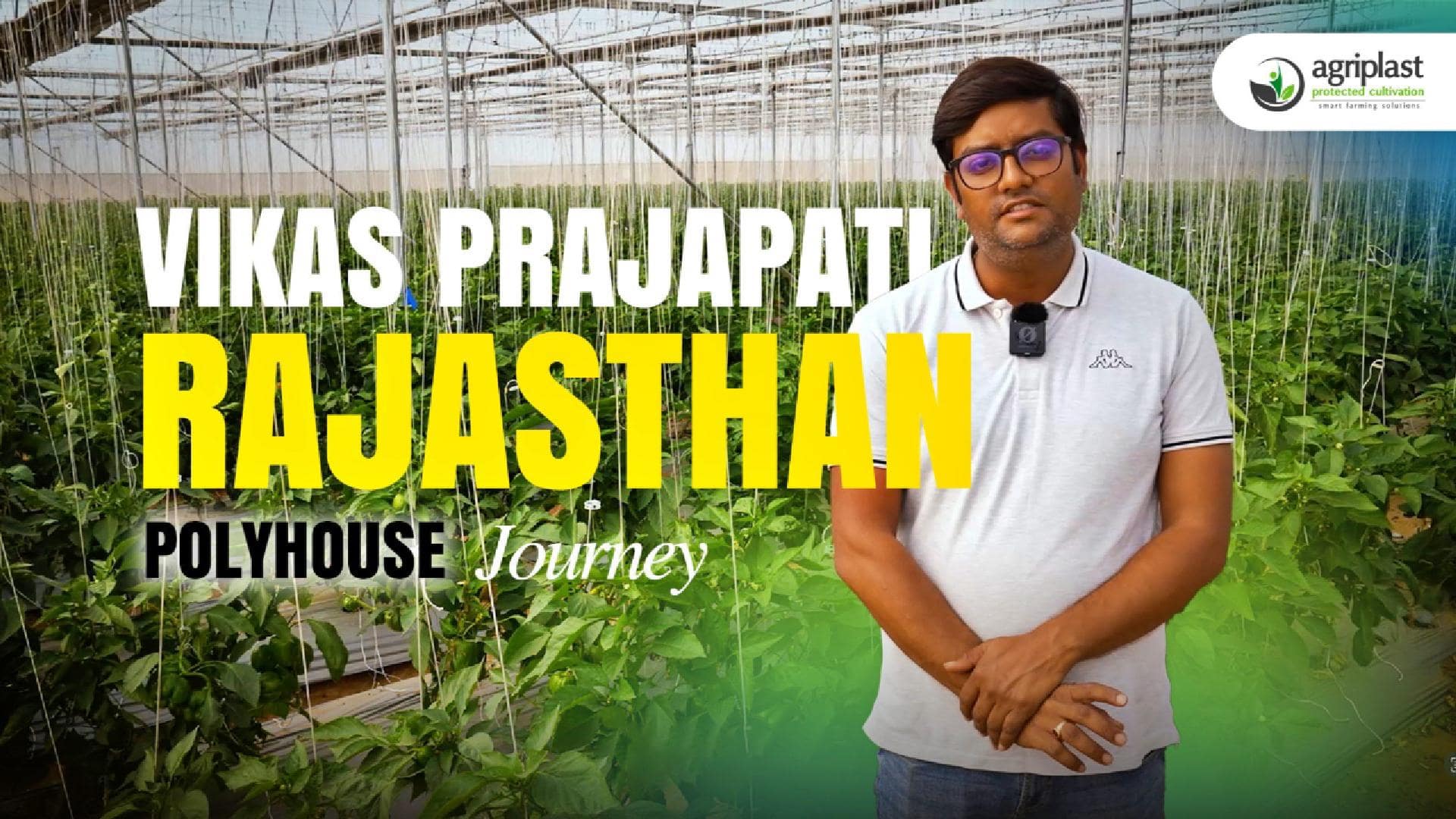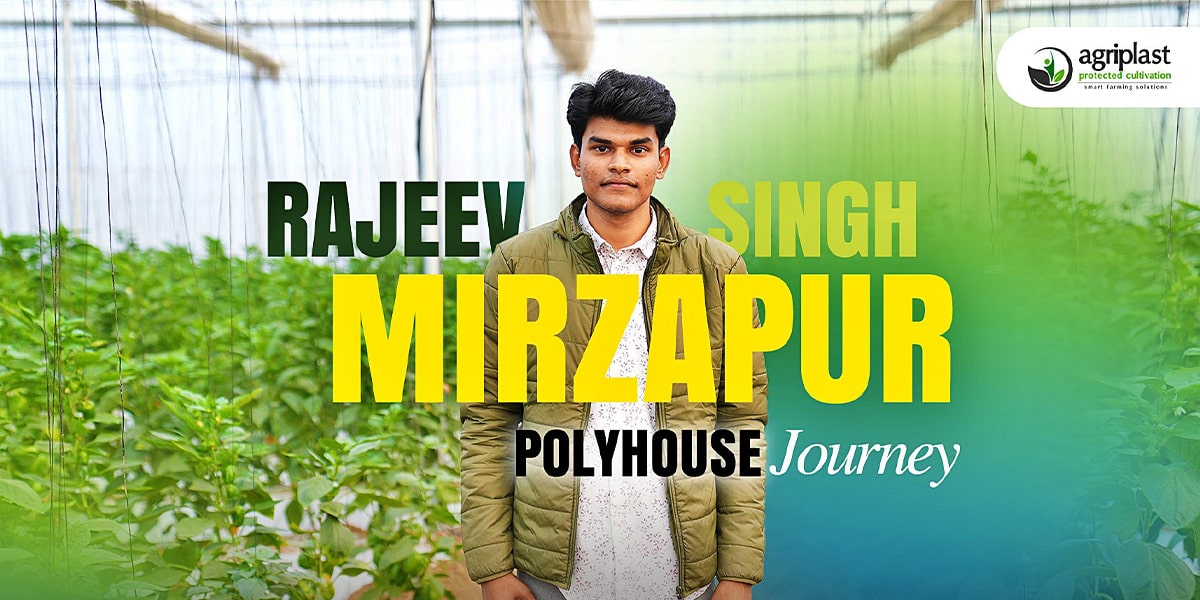The Role of Innovation in Modernizing Indian Agriculture with Polyhouses
Advantages and Disadvantages of Hydroponics Farming
With more people shifting to cities and their increased demands of varieties of foods in off-seasons, it is also giving more surge to produce more crops locally. Hydroponics system helps facilitate the production of healthy, local and organic crops right from the comfort of one's home. Hydroponics farming is the agricultural practice of growing plants without soil. With the help of water, which is enriched with all the required minerals and chemicals, plants are grown in an enclosed and protected environment.
Hydroponics farming has various benefits that make it way better than conventional field farming. However, some risk factors too can be counted as disadvantages of hydroponics. We need to take this into account not to lessen the amount of surplus produced by such an efficient method of farming. Therefore, before you invest your money in hydroponics farming, you need to know about the advantages and disadvantages of hydroponics to properly understand if this kind of farming is what you need for your future.

Advantages of Hydroponics Farming
Hydroponics farming is a soil-less farming method that helps the farmers, homeowners, commercials, and almost every stratum of society differently. It helps in growing crops anywhere and at any time of the year. Below mentioned are some of the amazing benefits of hydroponics farming which might push you to invest in this efficient farming system.
Higher Yield
One of the significant problems farmers face is the amount of yield they generate from their farmlands. In addition, crop failure due to irregular monsoon and poor irrigation facilities is what farmers commonly face. All these factors sometimes lead farmers to go under tremendous financial stress because the yield is what they are dependent on to lead their lives.
One of the most vital benefits of hydroponics farming is that it aids in yielding crops all across the year. You can effectively grow more crops in less space using minimal water. So, the issue of lesser availability of water is mitigated.
The plants need no soil as the roots of plants in hydroponics farming receive the nutrients from the nutrient-rich water. Due to no sources, the growing plants require significantly less space to fructify than conventional agricultural practices. This ensures that the farmer can produce much more yield in the same area of land.
Minimal Space Usage
Farmers face issues because of small farmlands, which restricts them from producing a limited amount of crops in that one field. But one of the advantages of hydroponics farming is that it can serve a farmer with a much higher yield in a lesser space.
No Use of Pesticides
Hydroponics farming is an indoor farming kind which has controlled entrances. It becomes difficult for the insects to infiltrate the system and attack the plants. Also, this no soil kind of farming makes the plants free from soil-borne pests. You're saving your crops from ailments like Rhizoctonia and Fusarium.
Protected Environment Farming
The plants are grown in an enclosed, protected environment like a polyhouse, so there is no danger of pest attacks, weed growth, harsh weather conditions, etc.
Water Conservation
The chemically enriched water that we use to nurture the plants can be reused again and again; this adds another benefit to the hydroponics farming advantages. In conventional farming, a massive amount of water is used to produce a small crop. This loss of water is harmful to the people in the local area because of water scarcity issues the world is facing already. Therefore, water conservation is another benefit of hydroponics farming, which benefits the farmers.
Little Logistical Cost
The transportation of farm products takes a massive plunge in the farmers' earnings. Either the products get damaged, or the transportation expense is nothing less than a burden on the farmers' shoulders. Considering this issue, hydroponic farming benefits the suffering farmers by allowing them to grow their produce wherever they want to, maybe near the market. As there is no use of soil, growing plants' location is not a concern because there is no need for good quality soil.
Producers Can Control The Production Process
One of the astonishing advantages of hydroponic farming is that the farmer can decide what to grow, when, and how to grow. Farmer alone decides what chemicals they need to feed the plant with. Also, as the farmer builds a micro-climate, he will choose when to grow a crop; there is no useless wait of seasons or monsoon to grow a crop. This means that a farmer can grow a crop throughout the year, increasing predictability exponentially.
Disadvantages of Hydroponics Farming
After many advantages of hydroponics, we must acknowledge some of the disadvantages of hydroponics farming before investing in hydroponics farming.
Expensive Infrastructure
The infrastructure required is quite expensive, and the return on investment (RoI) is low in the initial stages. However, financial institutions can play a pivotal role here, and the government is also keen to support farmers so that the impact can be lessened.
Risk of Power Outages
The complete process requires a good amount of electricity and that too undisturbed. This demands no power outages, and frequent loss of electricity may hamper the growth of plants. In a rural setup, this is not easy to ensure a continuous supply of power, which accounts for a disadvantage of hydroponic farming.
Intense Care Required
There is a lesser need to keep observing the plant growth in conventional farming as mother nature does all she can to make the plants grow. But when it comes to hydroponic farming setup, you need to be more conscious than ever before, as your minor negligence can result in the death of the plant you nurtured. There are various benefits of hydroponics, but nothing in this world is perfect altogether.
Knowledge and Experience
Different kinds of machinery and techniques are used that farmers are unaware of. Therefore, they need to learn before laying their hands on the hydroponic farming process. You need to be keen to learn, adapt and master the whole process, which can be burdensome, but this burden is lighter than what you bear with lesser yield in the field farming.
The benefits of hydroponics farming will always overshadow the associated disadvantages. This is because the burdens of hydroponics demand a bit of evolution from the farmers' side, and this little effort results in huge surplus realisation. So, it is not much about the advantages and disadvantages of hydroponics but an opportunity to modernise agricultural practices.
Conclusion
Being one of the leading and renowned companies in the field of the agricultural industry, Agriplast Protected Cultivation Private Limited would love to serve you with the best hydroponics farming-related services. Suppose you have been thinking of getting a polyhouse setup done, a greenhouse, or even a hydroponics farming setup done.
In that case, our team at Agriplast Protected Cultivation Private Limited will indeed serve you with the best suggestions for your best future. It's time to evolve with the evolving world.






















